651.913 EUR
4 Ba
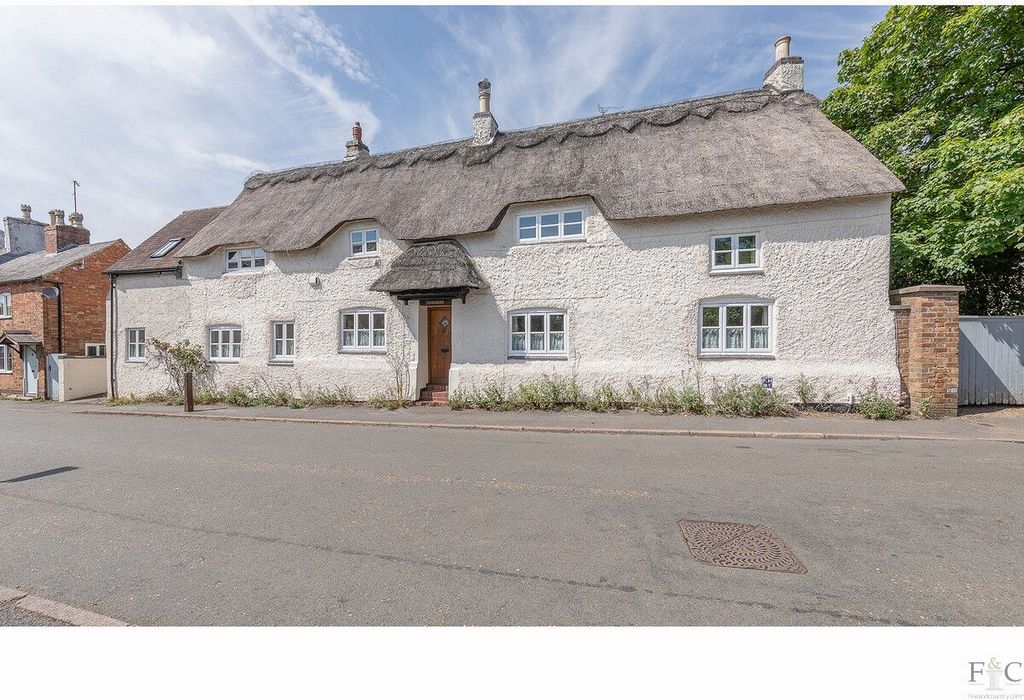
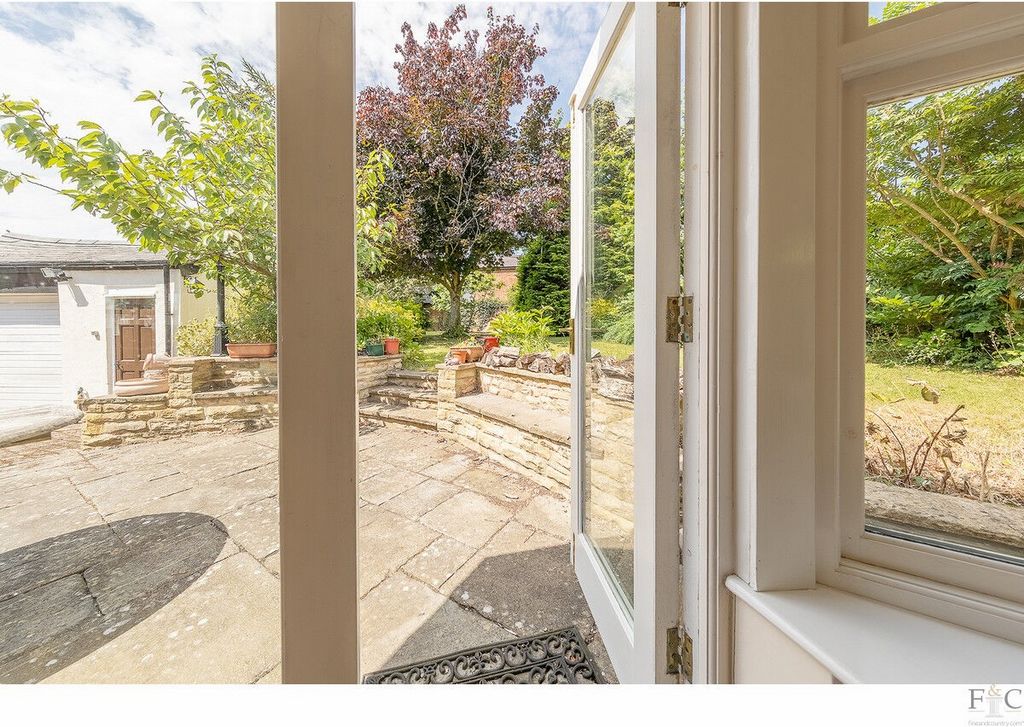
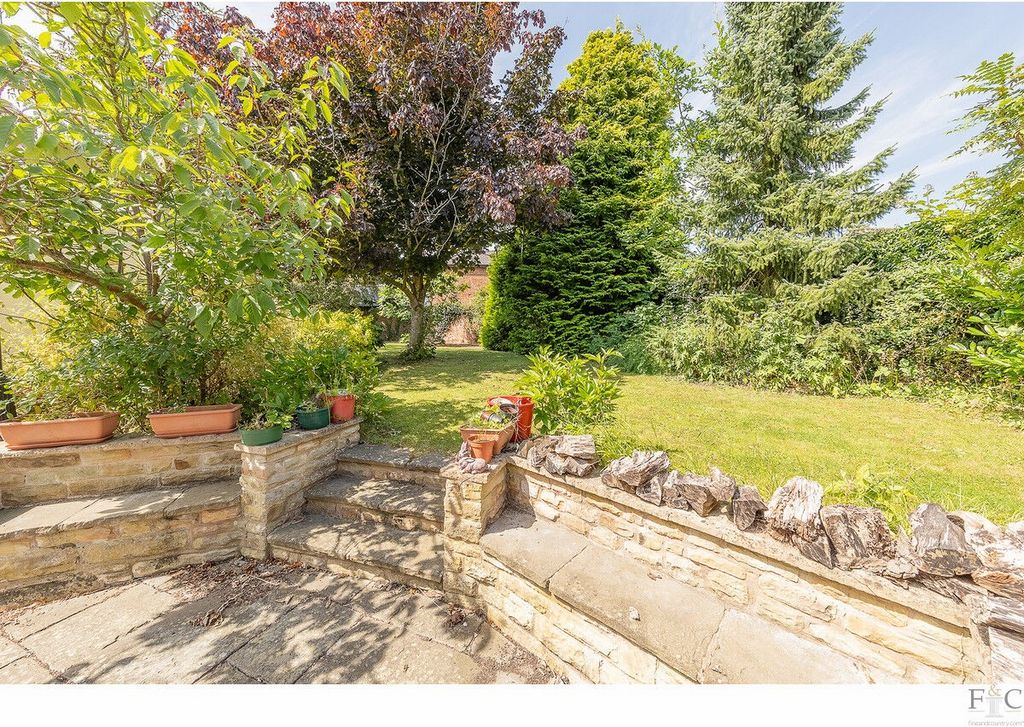
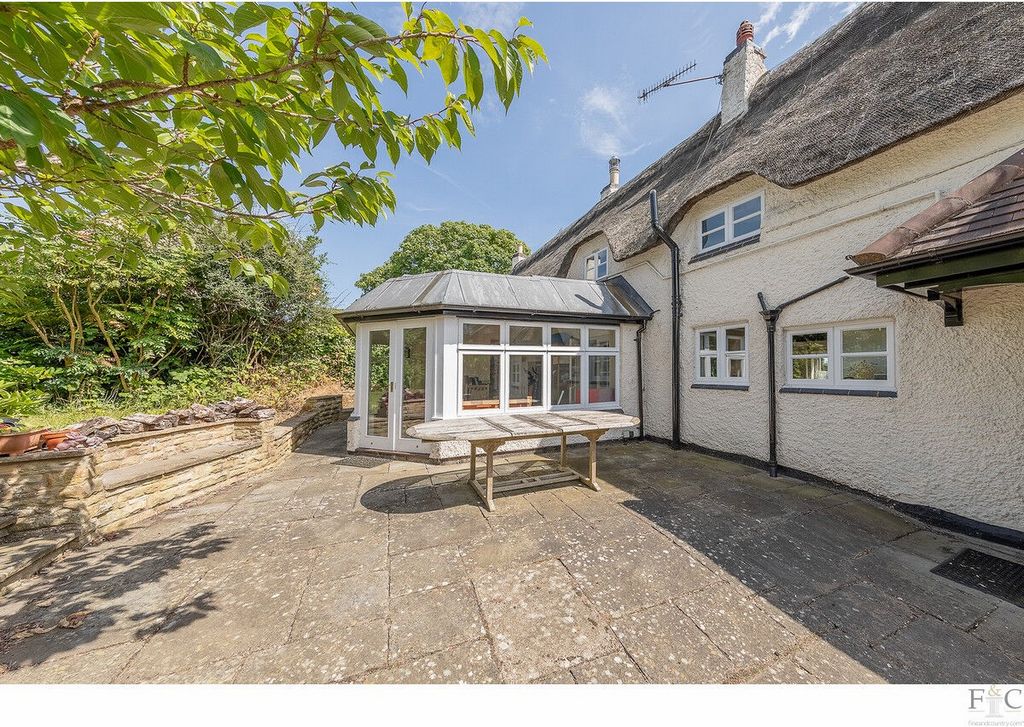
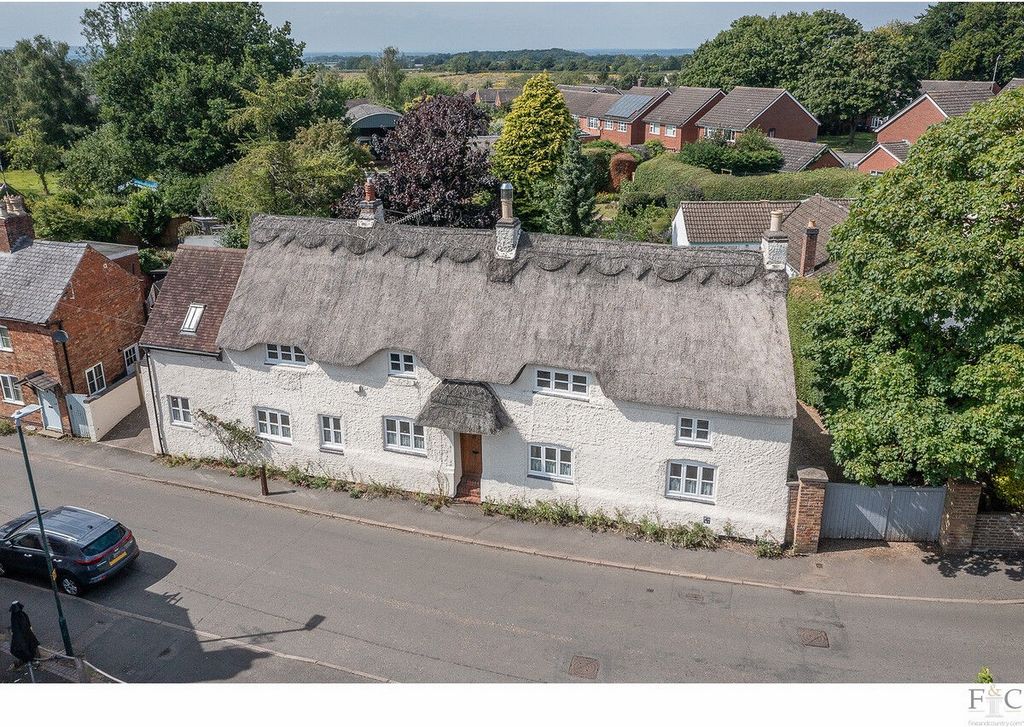
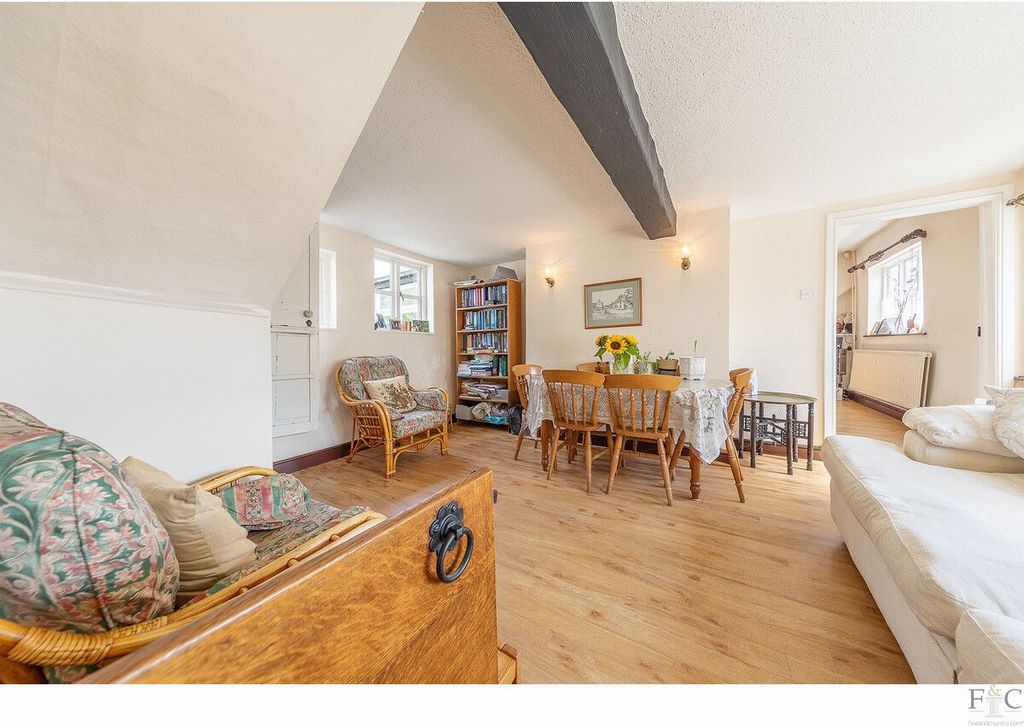
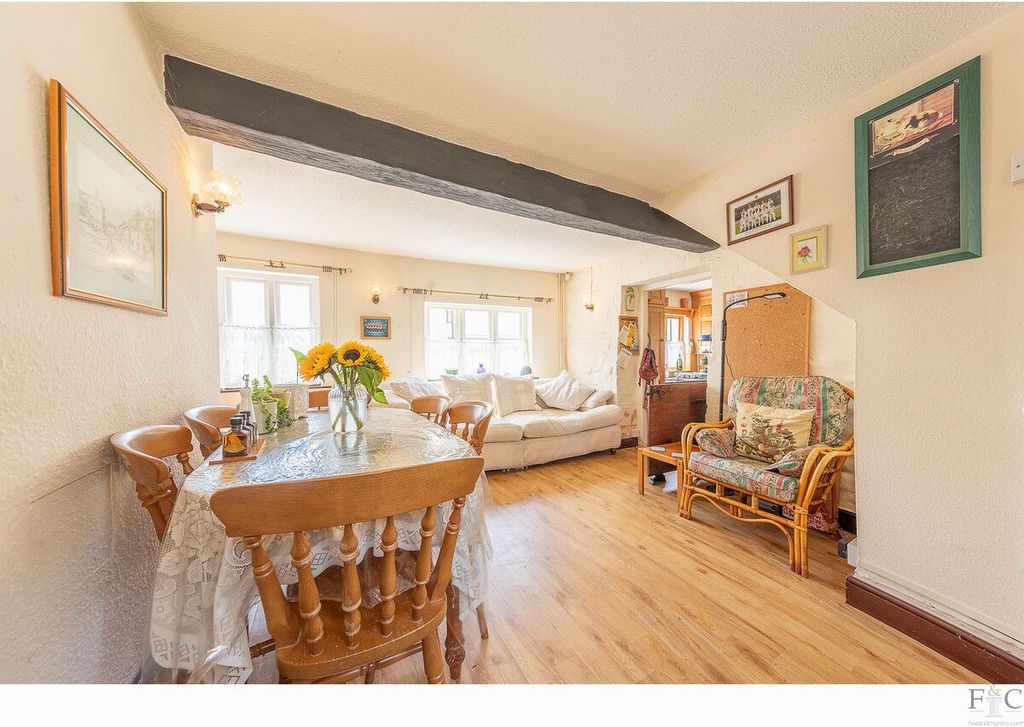
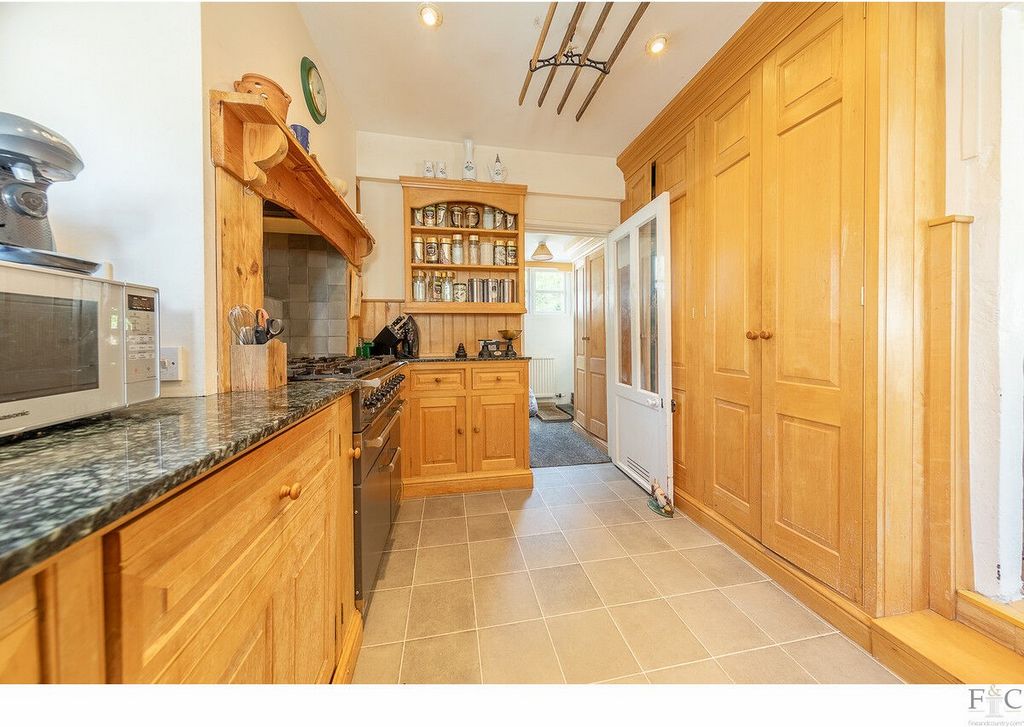
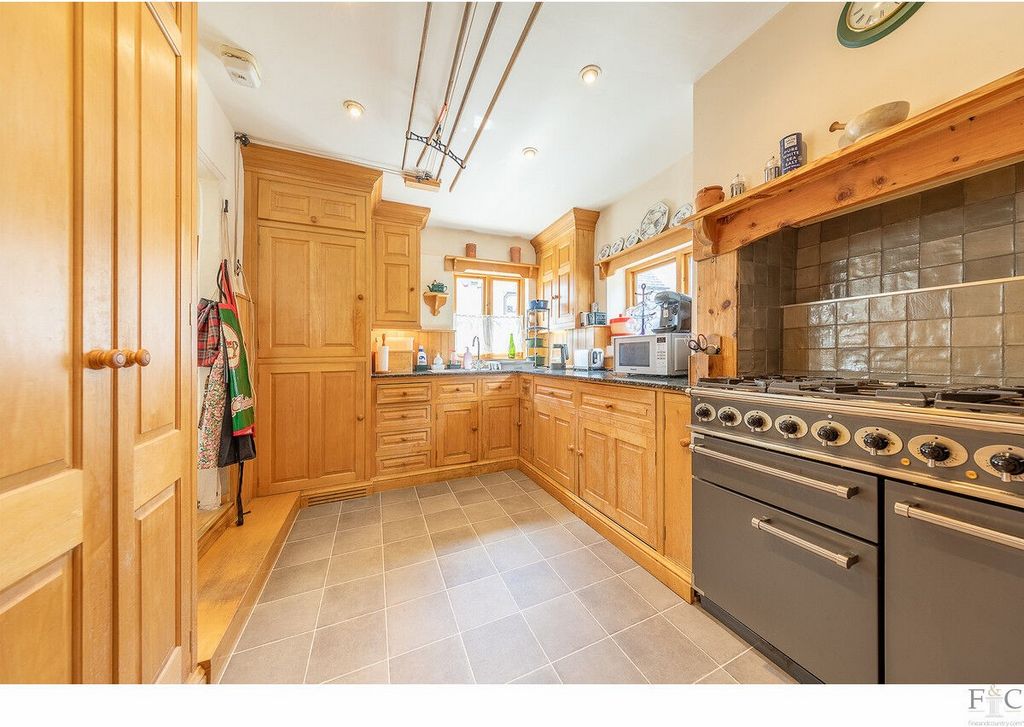
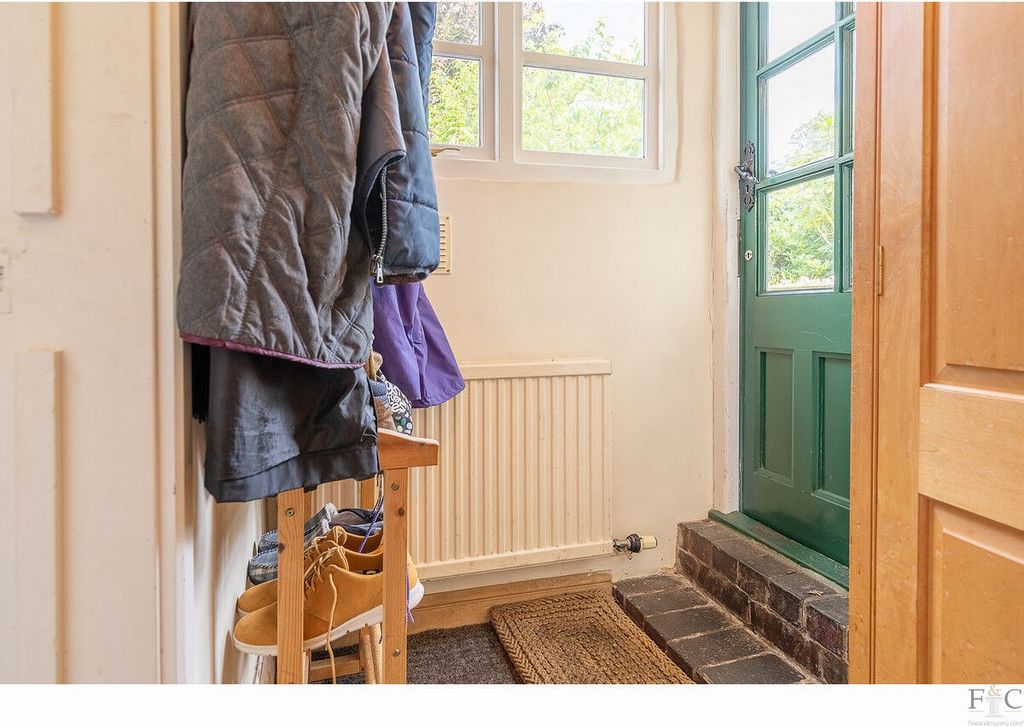
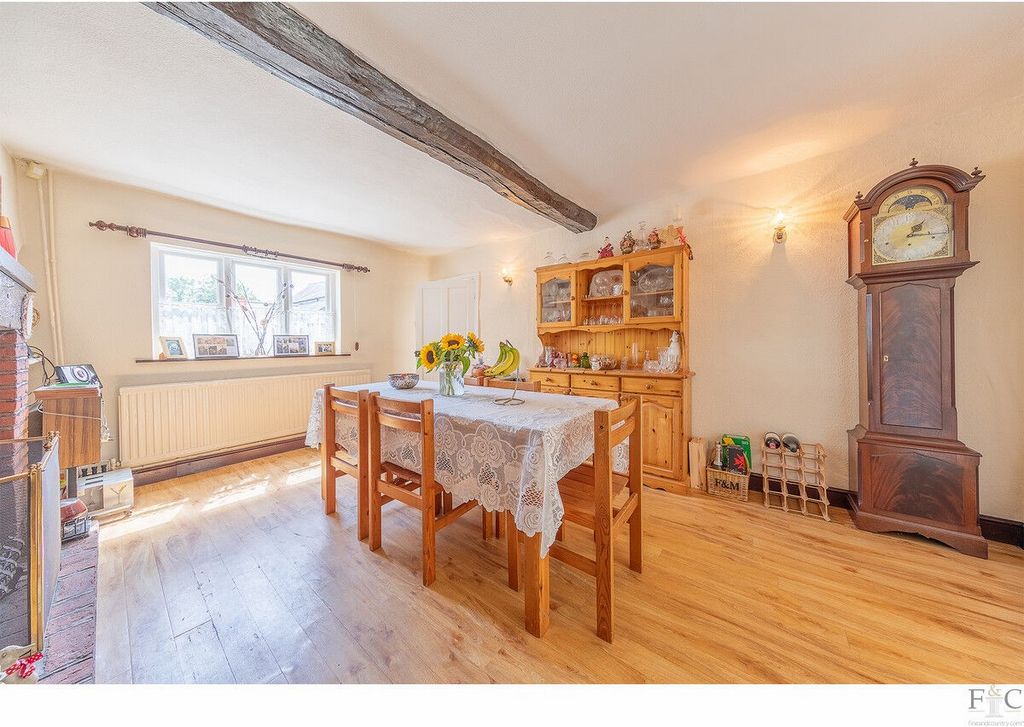
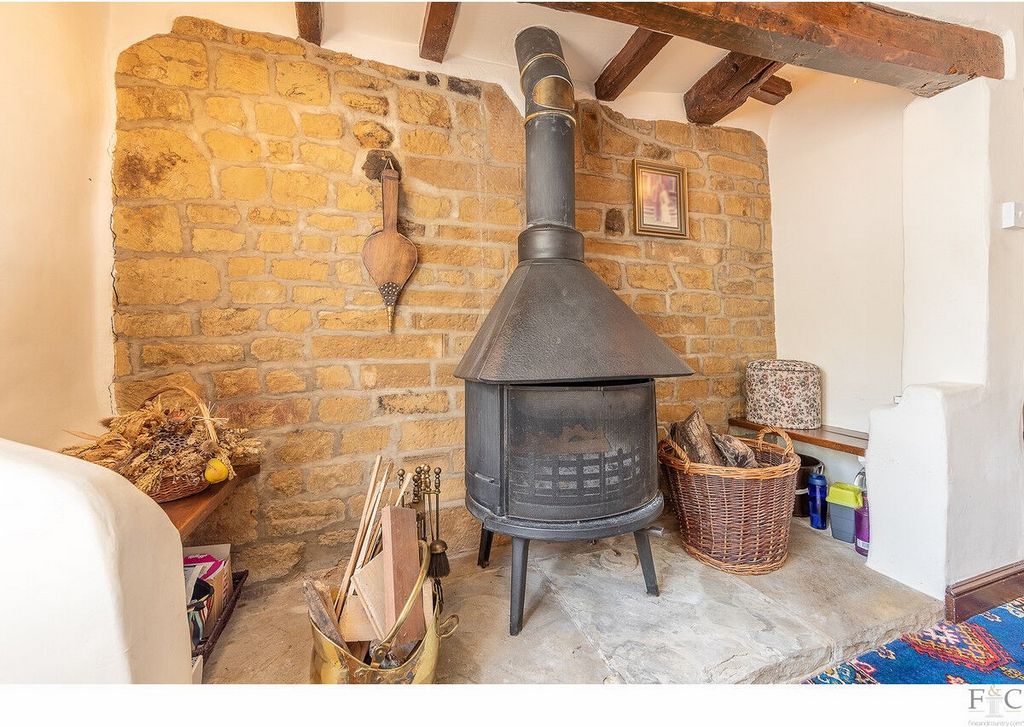
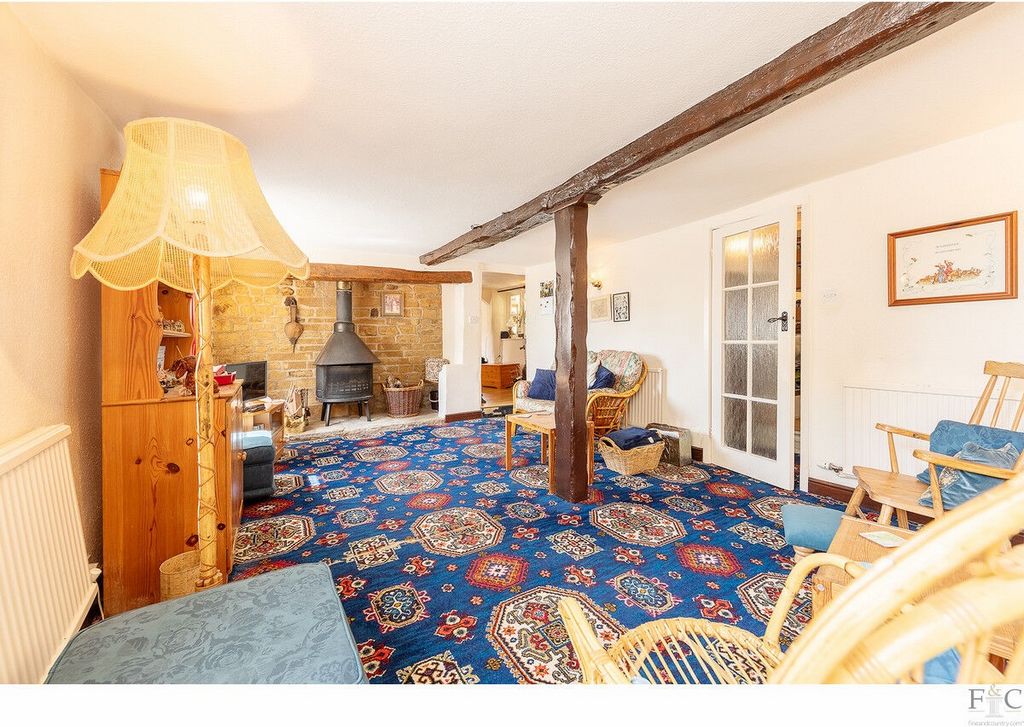
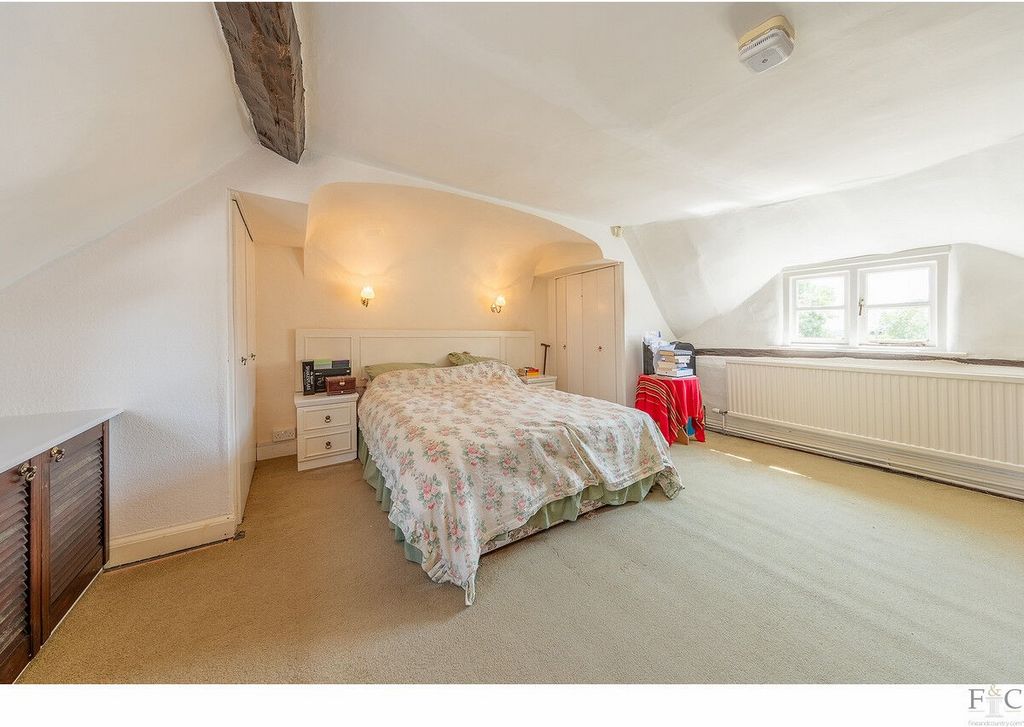
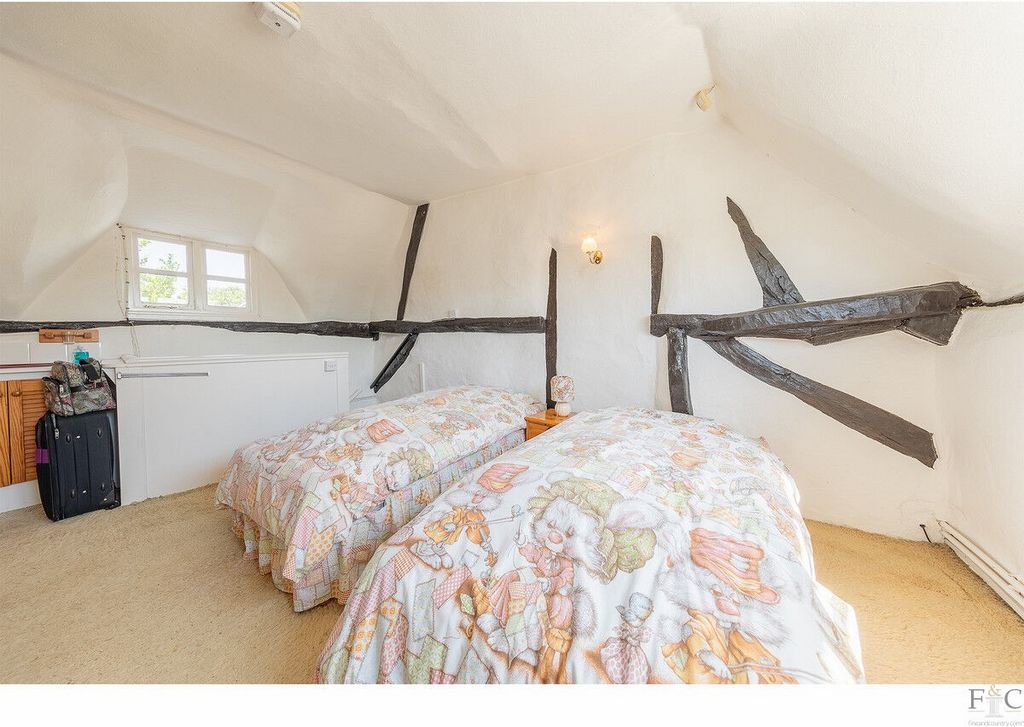
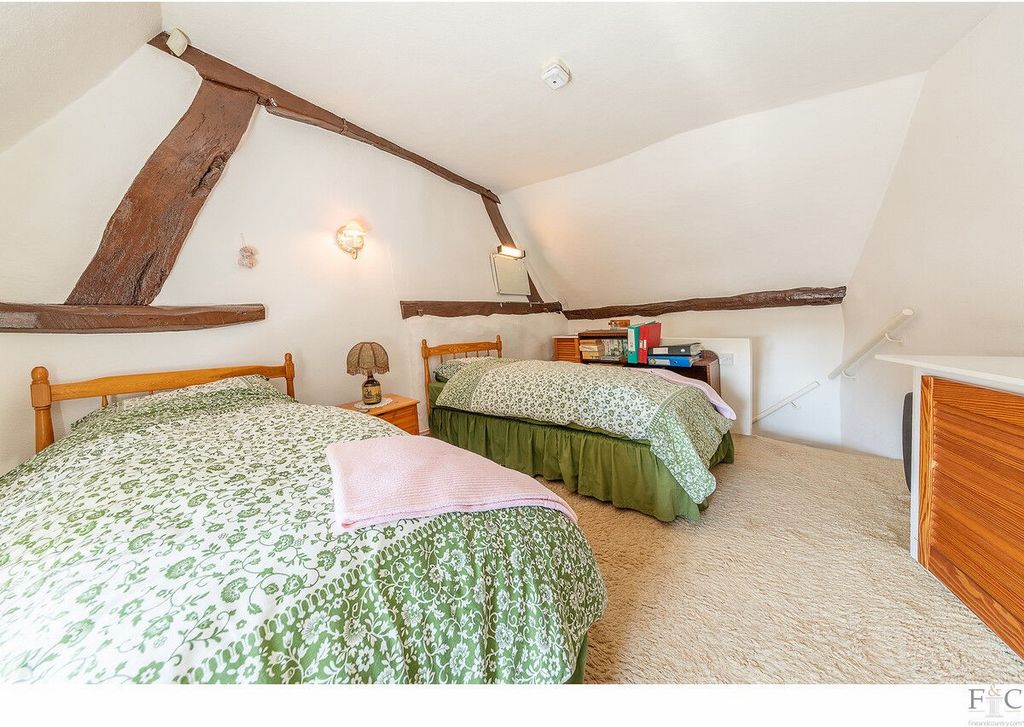
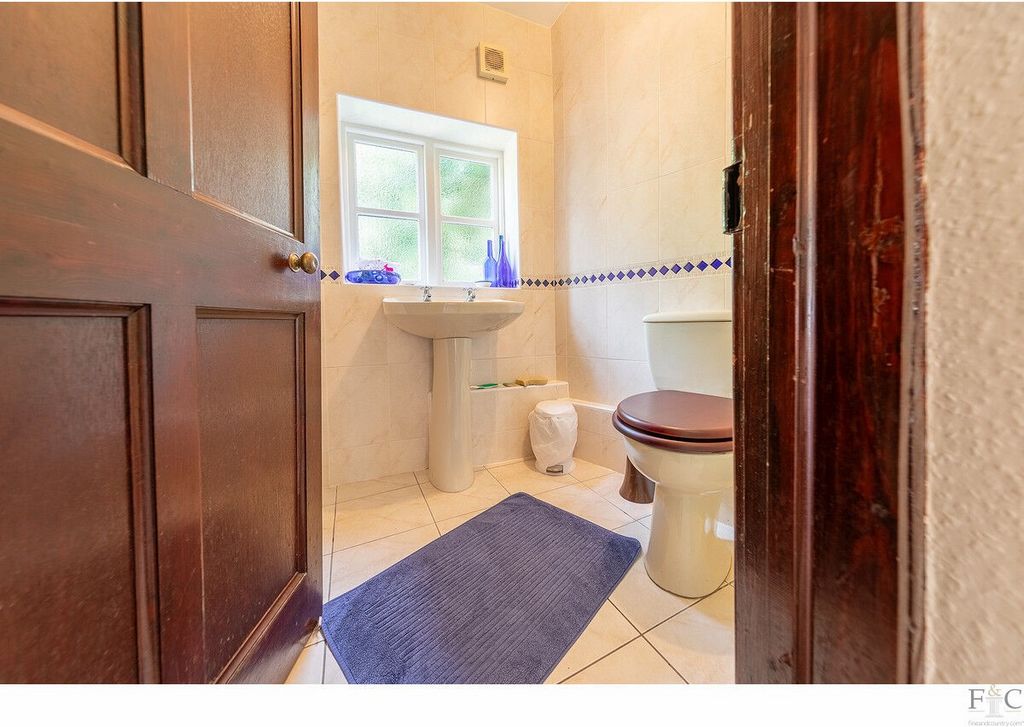
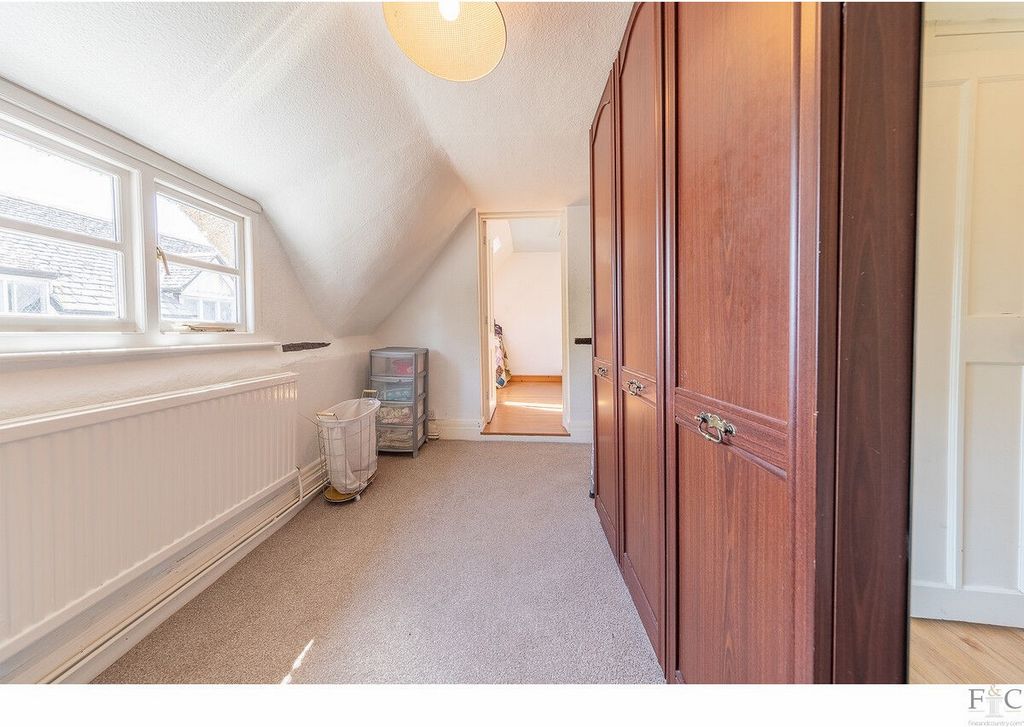
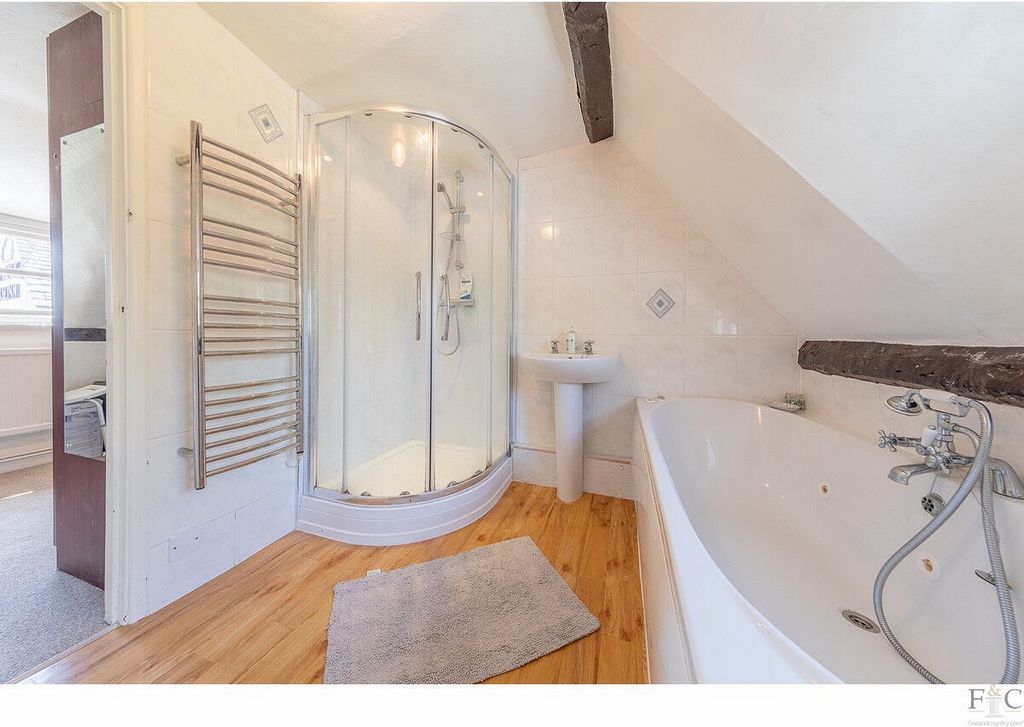
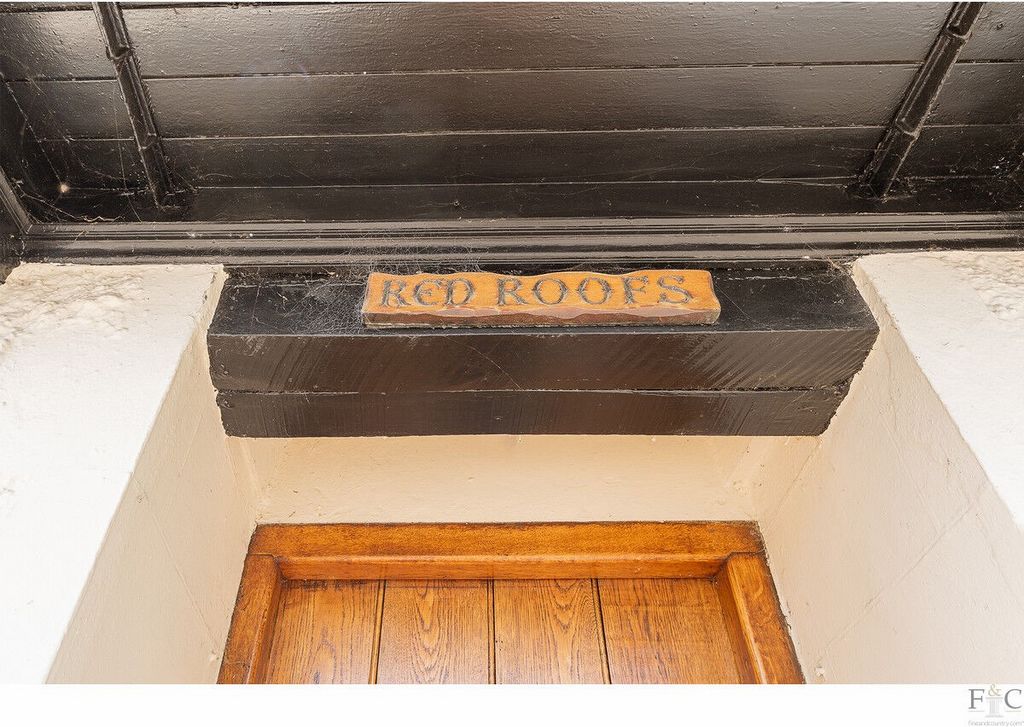
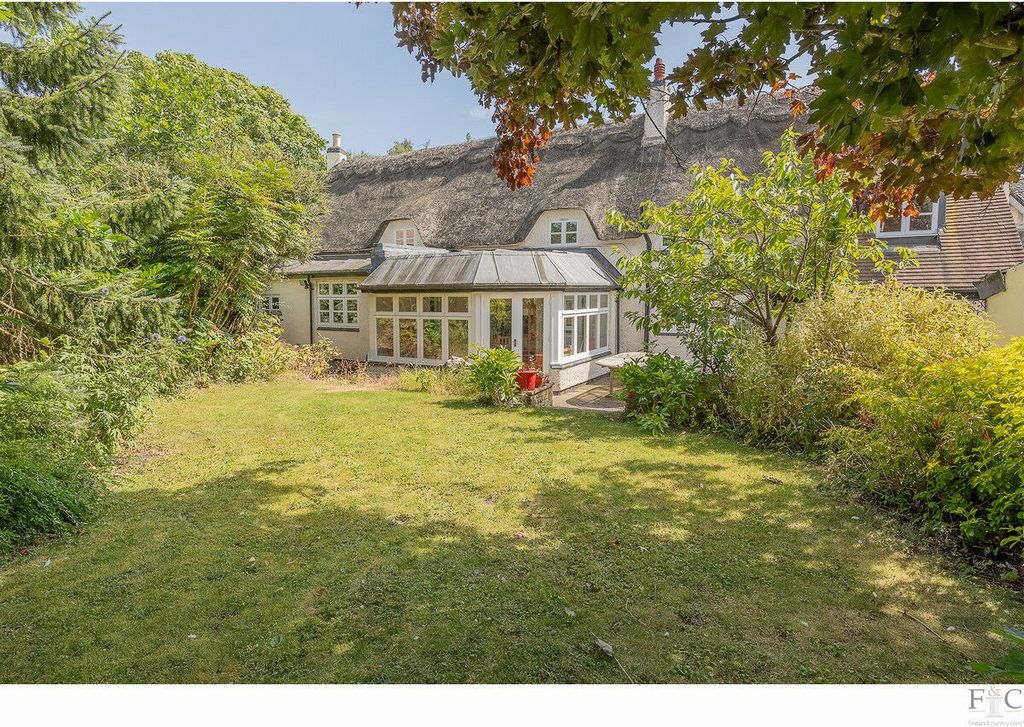
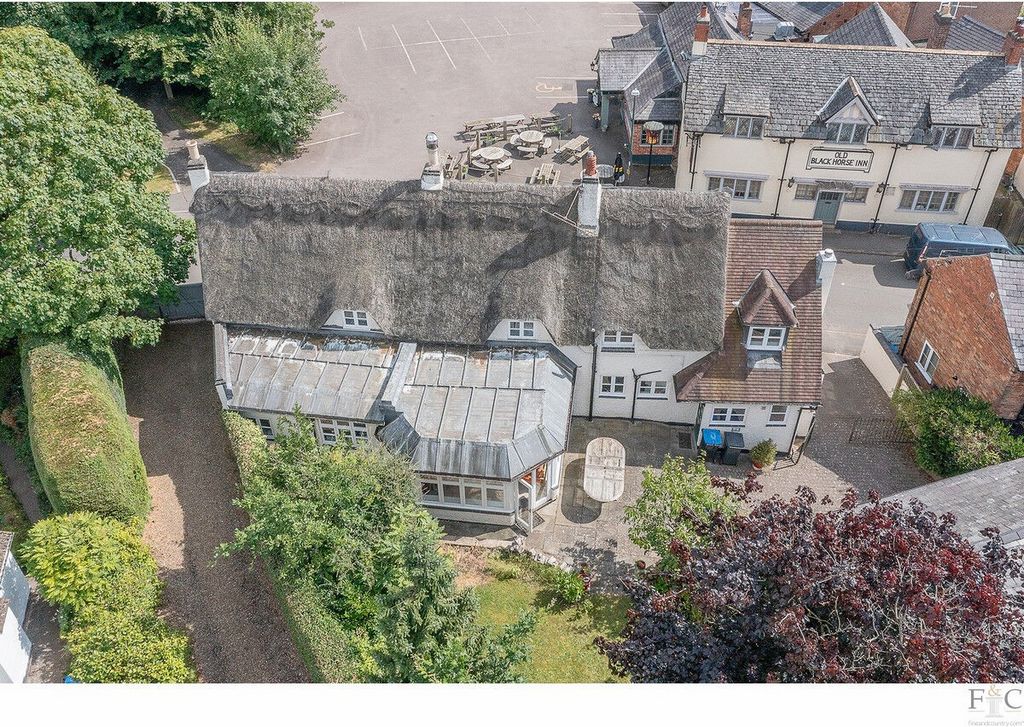
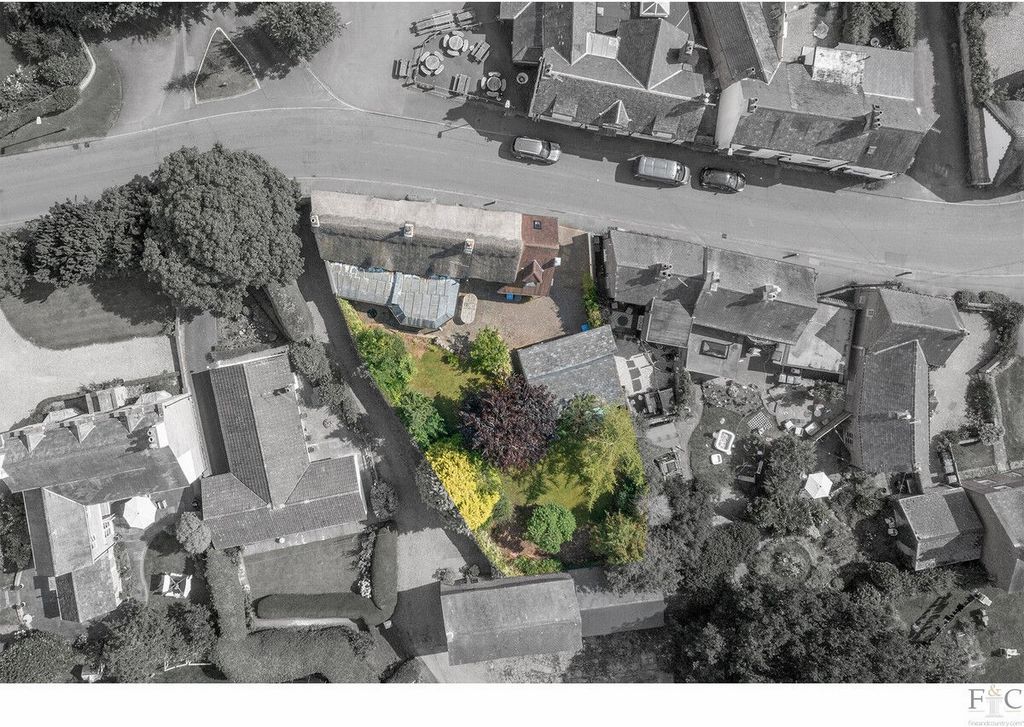
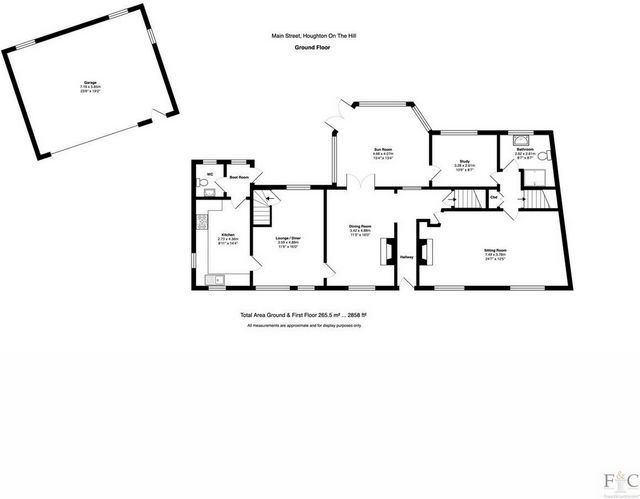
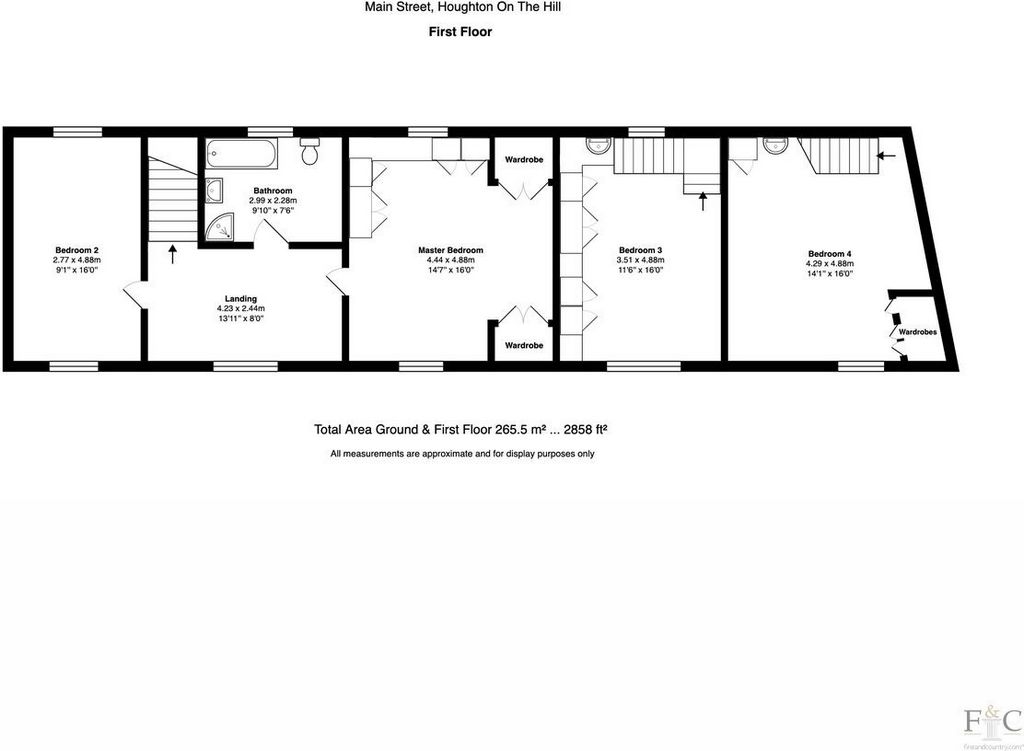
Part of the village narrative
Red Roofs is synonymous with the central history of Houghton on the Hill. It has been recognised as a nationally important building and was listed in 1984 as Grade II. On the National Heritage List for England (NHLE) it is noted that it is probably a cruck framed house and dates from the late sixteenth or early seventeenth century. Foremost however, it has been a carefully nurtured and enjoyed home for hundreds of years: the present owners have lived in the property for thirty-three of these.
Positioned on Main Street, this detached house is actually formed from three cottages converted into one building over a number of years. On the ground floor, there are four reception rooms, a kitchen, boot room, cloakroom, sun room and bathroom. Three staircases lead to the four double bedrooms and a bathroom on the first level and provide the strongest architectural evidence of the original construction. A direct street entrance opens into an entrance hall and to the side, along a gated driveway, there is a separate, double garage, with established gardens to the rear.
First impressions
Red Roofs has whitewashed rendered brick walls with a plinth and thatch roof over three quarters of its length. The remaining quarter is tiled. As its name suggests, at one time the thatch was covered with a red painted corrugated iron roof. There are two brick ridge chimney stacks, a right end stack, and a centrally recessed front door with thatched canopy.
The interior remains true to character. Black wrought iron door latches and hinges, whitewashed walls and hewn, cruck shaped beams reveal their simple architectural and sculptural quality. The cruck cottage is so called because it is essentially an A frame timber building, which supports the purlins and wall plates, transferring the load of the roof to the ground. Red Roofs may have been a single storey at one time, and the window in bedroom four above the sitting room is possibly at the original floor level. Others have been raised in later conversions and three at the rear of the property are eye brow dormers, beautifully enhanced by the thatch roof.
A warm welcome
Passing under the thatched entrance, with steps up to the solid oak front door, the entrance hall opens out to the dining room on the left and the middle staircase on the right. With the exception of the carpeted sitting room, the reception rooms have solid flooring. They are well proportioned rooms and are light and airy spaces, many benefiting from dual aspect windows. The dining room has a window to the front and light pours in through double glass doors from the entrance into the sun room, and an internal window.
Fireplaces provide focal points in the dining room and large lounge, which has an inglenook fireplace topped with a mantel shelf, stone hearth, seating to each side and a Jotul wood burning stove. The feature fireplace in the dining room benefits from an electric fire. Close your eyes and imagine the sun pouring through the windows or the prospect of curling up with a good book in front of the fire in this cosy retreat. Bliss!
The lounge has two windows to the front and an interior door opening onto a small lobby with the third staircase. This leads to bedroom four, the downstairs bathroom consisting of walk-in shower, basin and toilet and another door into the study.
In the study there is fitted shelving to three walls and a work top/desk area under the window which looks out into the garden. It has a door into the sunroom, which is floor tiled with underfloor heating and has double doors opening onto a large sweep of patio that crosses the back of the property, providing a generous space to relax in the secluded, private garden. A rear entrance from the boot room is a few steps away, where a cloak room consisting of a basin and toilet are conveniently positioned for those coming in directly from the garden. The next room is the kitchen and through that to the lounge diner, where the first staircase leads to the remaining two bedrooms, including the master and a large bathroom. If this room is crossed rather than ascending the stairs, the visitor will find themselves back into the dining room and the original point of entrance. This arrangement of rooms has evolved as the property has been merged and extended. By keeping three staircases, the size of the bedrooms has not been compromised and by incorporating two bathrooms and a cloakroom - at opposite ends of the property - contemporary expectations have been meet in a period home.
A country kitchen
The kitchen itself is very practical and has a generous collection of maple fitted wall and floor units. In keeping with the character of the cottage, a dresser style unit and plate rack, with deep mantel shelf above the cooker and Victorian pulley rack have been added. The floor is heavy duty vinyl and there are metro aligned tiles as a splashback, with contrasting black and grey qranite work tops. Dual aspect windows allow the light to flood in from the front and side of the house and the sink unit is under a window looking to the roadside. Integrated appliances include a fitted cooker with extraction hood, dishwasher and fridge freezer. The kitchen is next door to the dining room/ lounge and together they create a flexible and adaptable space for entertaining, with easy access to the garden.
The first floor
The layout of the first floor affords generous sized bedrooms of character and privacy, with exposed blackened beams and whitewashed walls. The first staircase leads to a wide landing and three doors to two bedrooms and the family bathroom. Both the master bedroom and bedroom number two have dual aspect windows, the former has a generous arrangement of fitted storage and bedroom 2 has a built in wardrobe. The bathroom consists of a walk in shower, basin, bath and toilet with heated towel rail.
Bedrooms three and four are similarly decorated and large, with integrated storage. They have their own staircases and the second downstairs bathroom is within easy reach.
From its humble beginnings, Red Roofs has emerged as a spacious home, under the artistry of a thatched roof: cool in summer and warm in winter. The private grounds to the rear of the property compliment the quintessentially English countryside scene with lawn, established trees, a well feature and cottage garden plants. The perfect place to sit and relax!LOCALITY
Houghton on the Hill LE7
Houghton on the Hill is a village in central England, a region referred to as the East Midlands. It is situated approximately 6 miles east of Leicester’s city centre and 24 miles south of Nottingham. It is in the LE7 postcode district and falls within the borough of Harborough.
The A47 is predominantly the village’s link road via Uppingham Road. It is within a short distance to the A6. The M1 (junction 21, west towards Leicester Forest East) M6 and M69 maximise the potential for speedier travel by road from this central Midland location.
There are railway stations in South Wigston and Leicester, where the Midland Main Railway Line runs trains to London – Leicester to St Pancras - regularly. There are normally 70 trains running daily, to London, the fastest taking only 1 hour and 12 minutes.
Houghton on the Hill maintains all the charm and features associated with a rural location. There are two public houses, The Old Black Horse and The Rose and Crown. Similarly there are two churches, the Anglican St Catharine's church and a Methodist church, both situated on Main Street in the village centre.
Houghton has a village hall with bowling green attached. The hall is used for community events and the community is active in organising such occasions as the Houghton Scarecrow Festival. The village has a monthly newsletter, the Houghton News, which features articles from various village groups, events listings, and reports from Parish Council meetings.
Houghton has a scout troop ranging from Beavers to Explorers. There is also a tennis club situated on the Weir Lane playing fields. Houghton has a football team (Houghton Rangers Football Club) who have a junior team set up as well as an adult team. They also play on Weir Lane playing fields as well as a cricket team (Houghton Cricket Club) who play on Dixon's field in the southern end of the village next to the School.
Houghton on the Hill is within a short car journey of the towns of Oadby, Market Harborough, Syston, Lutterworth, Uppingham, Oakham and Hinckley. All these towns offer a variety of amenities such as edge of town super stores or uniquely bespoke shops, restaurants, sports venues, public houses, cafes and parks.
Houghton on the Hill C of E Primary School was erected in 1856 and extensions have been added to accommodate the growing number of pupils. It is a co-educational Church of England (controlled) Primary School and educates children from 4 to 11 years of age. Within the locality, there are many other schools offering educational provision across the whole age range; nursery, primary, secondary, including private establishments offering bordering facilities. The Office for Standards in Education - OFSTED – is best researched to provide a comprehensive review of currently rated standards of practice.
Features:
- Garage
- Garden
- Parking Mehr anzeigen Weniger anzeigen ‘Archetypally English, a thatched cottage to aspire to own.’
Part of the village narrative
Red Roofs is synonymous with the central history of Houghton on the Hill. It has been recognised as a nationally important building and was listed in 1984 as Grade II. On the National Heritage List for England (NHLE) it is noted that it is probably a cruck framed house and dates from the late sixteenth or early seventeenth century. Foremost however, it has been a carefully nurtured and enjoyed home for hundreds of years: the present owners have lived in the property for thirty-three of these.
Positioned on Main Street, this detached house is actually formed from three cottages converted into one building over a number of years. On the ground floor, there are four reception rooms, a kitchen, boot room, cloakroom, sun room and bathroom. Three staircases lead to the four double bedrooms and a bathroom on the first level and provide the strongest architectural evidence of the original construction. A direct street entrance opens into an entrance hall and to the side, along a gated driveway, there is a separate, double garage, with established gardens to the rear.
First impressions
Red Roofs has whitewashed rendered brick walls with a plinth and thatch roof over three quarters of its length. The remaining quarter is tiled. As its name suggests, at one time the thatch was covered with a red painted corrugated iron roof. There are two brick ridge chimney stacks, a right end stack, and a centrally recessed front door with thatched canopy.
The interior remains true to character. Black wrought iron door latches and hinges, whitewashed walls and hewn, cruck shaped beams reveal their simple architectural and sculptural quality. The cruck cottage is so called because it is essentially an A frame timber building, which supports the purlins and wall plates, transferring the load of the roof to the ground. Red Roofs may have been a single storey at one time, and the window in bedroom four above the sitting room is possibly at the original floor level. Others have been raised in later conversions and three at the rear of the property are eye brow dormers, beautifully enhanced by the thatch roof.
A warm welcome
Passing under the thatched entrance, with steps up to the solid oak front door, the entrance hall opens out to the dining room on the left and the middle staircase on the right. With the exception of the carpeted sitting room, the reception rooms have solid flooring. They are well proportioned rooms and are light and airy spaces, many benefiting from dual aspect windows. The dining room has a window to the front and light pours in through double glass doors from the entrance into the sun room, and an internal window.
Fireplaces provide focal points in the dining room and large lounge, which has an inglenook fireplace topped with a mantel shelf, stone hearth, seating to each side and a Jotul wood burning stove. The feature fireplace in the dining room benefits from an electric fire. Close your eyes and imagine the sun pouring through the windows or the prospect of curling up with a good book in front of the fire in this cosy retreat. Bliss!
The lounge has two windows to the front and an interior door opening onto a small lobby with the third staircase. This leads to bedroom four, the downstairs bathroom consisting of walk-in shower, basin and toilet and another door into the study.
In the study there is fitted shelving to three walls and a work top/desk area under the window which looks out into the garden. It has a door into the sunroom, which is floor tiled with underfloor heating and has double doors opening onto a large sweep of patio that crosses the back of the property, providing a generous space to relax in the secluded, private garden. A rear entrance from the boot room is a few steps away, where a cloak room consisting of a basin and toilet are conveniently positioned for those coming in directly from the garden. The next room is the kitchen and through that to the lounge diner, where the first staircase leads to the remaining two bedrooms, including the master and a large bathroom. If this room is crossed rather than ascending the stairs, the visitor will find themselves back into the dining room and the original point of entrance. This arrangement of rooms has evolved as the property has been merged and extended. By keeping three staircases, the size of the bedrooms has not been compromised and by incorporating two bathrooms and a cloakroom - at opposite ends of the property - contemporary expectations have been meet in a period home.
A country kitchen
The kitchen itself is very practical and has a generous collection of maple fitted wall and floor units. In keeping with the character of the cottage, a dresser style unit and plate rack, with deep mantel shelf above the cooker and Victorian pulley rack have been added. The floor is heavy duty vinyl and there are metro aligned tiles as a splashback, with contrasting black and grey qranite work tops. Dual aspect windows allow the light to flood in from the front and side of the house and the sink unit is under a window looking to the roadside. Integrated appliances include a fitted cooker with extraction hood, dishwasher and fridge freezer. The kitchen is next door to the dining room/ lounge and together they create a flexible and adaptable space for entertaining, with easy access to the garden.
The first floor
The layout of the first floor affords generous sized bedrooms of character and privacy, with exposed blackened beams and whitewashed walls. The first staircase leads to a wide landing and three doors to two bedrooms and the family bathroom. Both the master bedroom and bedroom number two have dual aspect windows, the former has a generous arrangement of fitted storage and bedroom 2 has a built in wardrobe. The bathroom consists of a walk in shower, basin, bath and toilet with heated towel rail.
Bedrooms three and four are similarly decorated and large, with integrated storage. They have their own staircases and the second downstairs bathroom is within easy reach.
From its humble beginnings, Red Roofs has emerged as a spacious home, under the artistry of a thatched roof: cool in summer and warm in winter. The private grounds to the rear of the property compliment the quintessentially English countryside scene with lawn, established trees, a well feature and cottage garden plants. The perfect place to sit and relax!LOCALITY
Houghton on the Hill LE7
Houghton on the Hill is a village in central England, a region referred to as the East Midlands. It is situated approximately 6 miles east of Leicester’s city centre and 24 miles south of Nottingham. It is in the LE7 postcode district and falls within the borough of Harborough.
The A47 is predominantly the village’s link road via Uppingham Road. It is within a short distance to the A6. The M1 (junction 21, west towards Leicester Forest East) M6 and M69 maximise the potential for speedier travel by road from this central Midland location.
There are railway stations in South Wigston and Leicester, where the Midland Main Railway Line runs trains to London – Leicester to St Pancras - regularly. There are normally 70 trains running daily, to London, the fastest taking only 1 hour and 12 minutes.
Houghton on the Hill maintains all the charm and features associated with a rural location. There are two public houses, The Old Black Horse and The Rose and Crown. Similarly there are two churches, the Anglican St Catharine's church and a Methodist church, both situated on Main Street in the village centre.
Houghton has a village hall with bowling green attached. The hall is used for community events and the community is active in organising such occasions as the Houghton Scarecrow Festival. The village has a monthly newsletter, the Houghton News, which features articles from various village groups, events listings, and reports from Parish Council meetings.
Houghton has a scout troop ranging from Beavers to Explorers. There is also a tennis club situated on the Weir Lane playing fields. Houghton has a football team (Houghton Rangers Football Club) who have a junior team set up as well as an adult team. They also play on Weir Lane playing fields as well as a cricket team (Houghton Cricket Club) who play on Dixon's field in the southern end of the village next to the School.
Houghton on the Hill is within a short car journey of the towns of Oadby, Market Harborough, Syston, Lutterworth, Uppingham, Oakham and Hinckley. All these towns offer a variety of amenities such as edge of town super stores or uniquely bespoke shops, restaurants, sports venues, public houses, cafes and parks.
Houghton on the Hill C of E Primary School was erected in 1856 and extensions have been added to accommodate the growing number of pupils. It is a co-educational Church of England (controlled) Primary School and educates children from 4 to 11 years of age. Within the locality, there are many other schools offering educational provision across the whole age range; nursery, primary, secondary, including private establishments offering bordering facilities. The Office for Standards in Education - OFSTED – is best researched to provide a comprehensive review of currently rated standards of practice.
Features:
- Garage
- Garden
- Parking